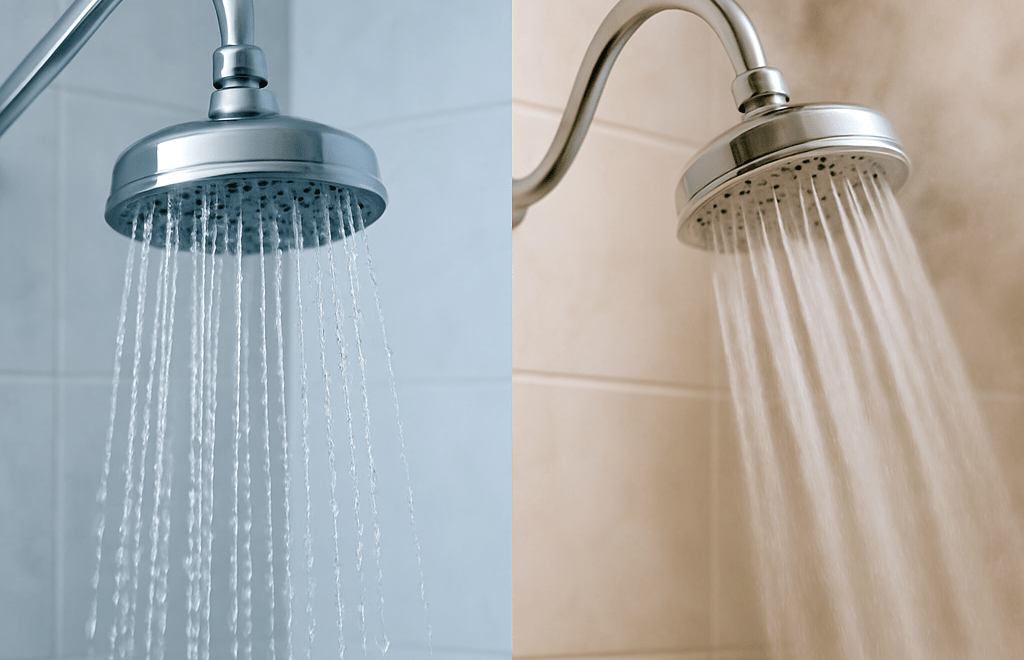
Taking a shower is one of those everyday rituals we rarely think twice about – but should you be reaching for the hot tap or embracing the chill? With the rise of cold exposure therapy and influencers like Wim Hof promoting the power of cold water immersion, many are swapping their steaming showers for an icy blast. But is it really better for your health?
In this article, we compare cold showers vs hot showers, exploring the science-backed health benefits of each and helping you decide which is right for your wellness routine.
🔥 The Health Benefits of Hot Showers
Hot showers have long been the go-to for comfort and relaxation. But beyond the soothing warmth, they offer several health advantages, especially when used mindfully.
1. Muscle Relaxation and Pain Relief
Hot water promotes blood flow to the skin and muscles, which can help soothe soreness and tension. It’s why hot showers are often recommended after workouts or to manage chronic pain conditions like arthritis.
🧠Heat therapy is effective for increasing circulation and easing stiffness.
2. Improved Sleep Quality
A hot shower in the evening can act as a natural sleep aid. Research suggests that a rise and subsequent drop in body temperature promotes melatonin production, aiding restful sleep.
A 2019 meta-analysis found that taking a warm shower 1–2 hours before bed significantly improved sleep onset latency and sleep quality.
3. Clears Nasal Passages and Skin
Steam helps open up airways, making hot showers particularly helpful during colds or hay fever season. The heat also opens pores, which can aid in cleansing the skin (though overexposure may lead to dryness or irritation).
❄️ The Health Benefits of Cold Showers
In contrast to hot showers, cold showers – often below 15°C – have surged in popularity thanks to movements like cold water therapy and the Wim Hof Method. But what’s behind the buzz?
1. Boosts Circulation and Immunity
Cold exposure constricts blood vessels on the surface, forcing blood to flow more efficiently to internal organs. This may improve overall circulation and cardiovascular health.
2. Enhances Mood and Reduces Stress
Cold showers stimulate the sympathetic nervous system, increasing the release of norepinephrine – a hormone linked to improved focus, alertness, and mood.
Advocates of the Wim Hof Method claim that combining cold exposure, breathing techniques, and commitment can lead to greater mental resilience and reduced anxiety.
3. Increases Metabolism and Fat Burning
Exposure to cold water can activate brown fat – a type of fat that burns calories to generate heat. This has led some to use cold showers as a tool for weight management and metabolic health.
🧊 What Is Cold Exposure Therapy?
Cold exposure therapy involves deliberately exposing the body to cold conditions (like ice baths, cold showers, or outdoor swims) to gain health benefits. It has been used by athletes, biohackers, and wellness enthusiasts for:
- Reducing inflammation
- Boosting mental clarity
- Supporting immune function
🆚 Cold Showers vs Hot Showers: Which One Wins?
| Benefit | Cold Showers | Hot Showers |
|---|
| Muscle recovery | ✅ Yes (reduces inflammation) | ✅ Yes (eases soreness) |
| Mental health & alertness | ✅ Yes | 🚫 Less effective |
| Sleep quality | 🚫 May be too stimulating | ✅ Yes |
| Circulation | ✅ Boosts deep circulation | ✅ Increases surface flow |
| Skin benefits | ✅ Tightens pores | ✅ Opens pores (but drying) |
| Immune support | ✅ Shown to help | 🚫 Not proven |
🧘 Which Shower Style Is Right for You?
- For relaxation, pain relief, and better sleep – go with a hot shower.
- For energy, mental clarity, and immune support – try a cold shower, even just for 30 seconds at the end of your normal routine.
- For the best of both worlds, consider a contrast shower: alternate between 60 seconds of cold and 60 seconds of hot for 3–5 cycles. This method is popular among athletes for recovery and circulation.
A Personalised Approach
There’s no one-size-fits-all answer. Your body’s needs will vary depending on your lifestyle, health goals, and even the season. While hot showers remain a comfort staple in the UK (especially during those long winters), cold water therapy is making waves in the wellness world for its invigorating and science-backed benefits.
If you’re curious, start slow: end your usual shower with 15–30 seconds of cold water, and gradually build up. And always consult with a healthcare provider if you have underlying health conditions before diving into extreme cold exposure.
Looking to optimise your wellness routine? Read our blog for tips on natural health, cold exposure, sleep, and sustainable fitness trends in the UK.





